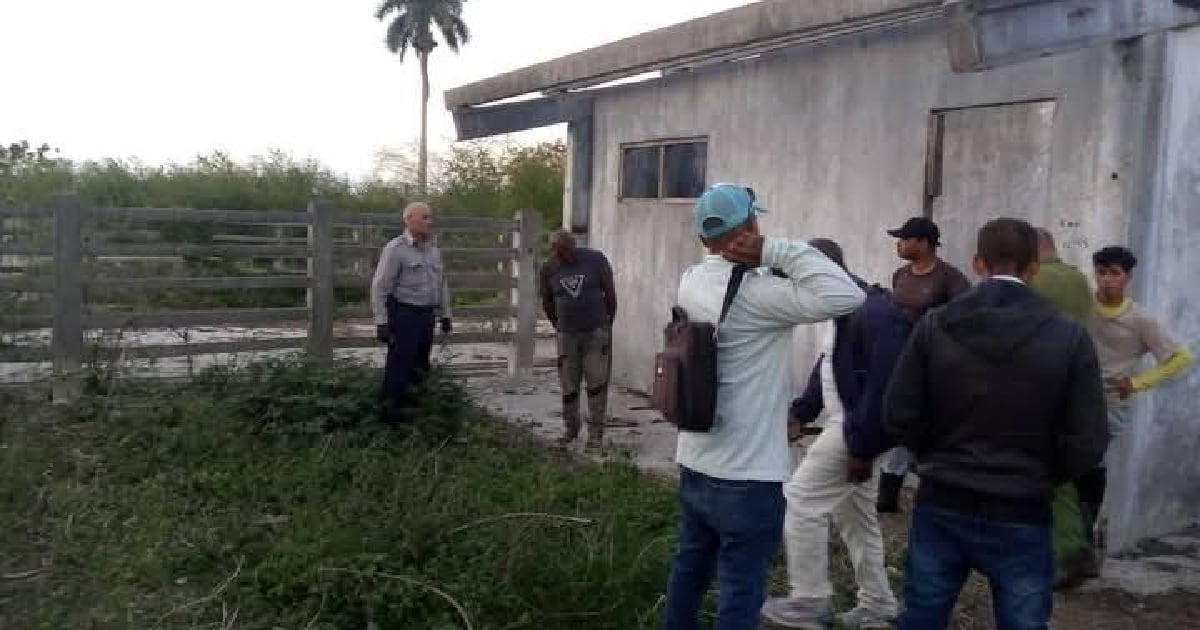
Related videos:
The Police arrested the manager of a cattle ranch in the municipality of Guanabacoa, in Havana, accused of illegally slaughtering two cattle, according to official sources.
A note originally published on the Facebook profile “El Cubano Fiel”, related to the Ministry of the Interior (Minint), and reproduced by the official page of the Municipal Administration Council of Guanabacoa, reported on the arrest of the state official this week, but did not disclose their identity.
Members of the rural brigades from the Havana municipality reported that the police arrived at the Típica 38 ranch, located in the Minas neighborhood, after it was discovered that cattle were missing following a count of the livestock and a phone alert from citizens.
When questioned by the officers, the ranch manager claimed that he had found the animals dead and, due to his nervousness, disposed of the bodies by throwing them into a pit.
According to the report, investigators and experts “dissected” his story and, with the evidence obtained, “proved to him that everything he said was not true.” The official was arrested and must be brought before the courts.
The crimes of theft and illegal slaughter of livestock are severely punished by the Cuban government. In 2024, 1,615 Cubans were sanctioned for offenses related to the illegal slaughter of large livestock and trafficking of its meat. 78% received sentences of up to 15 years.
Authorities have increased operations against the illegal beef trafficking, a phenomenon that reflects the severe food crisis in the country and the growing reliance of the population on the informal market to access this product.
This week, also in Guanabacoa, authorities arrested several individuals while they were transporting 23 bags of beef without the required legal documentation.
Days earlier, in Santa Clara, the MININT dismantled an illegal livestock killing network, seizing over 300 pounds of meat and arresting three individuals.
A national inspection carried out by the Livestock Registry Department of the Ministry of Agriculture (MINAG) between March 2024 and January 2025 detected 181,854 “irregularities” in the control of the cattle population in Cuba, including cases of theft and illegal slaughter, undeclared deaths, illegal buying and selling, and the disappearance of animals.
The provinces with the most violations were Pinar del Río, Mayabeque, and Las Tunas, with a total of 1,128 unresolved cases.
Frequently Asked Questions about Illegal Livestock Slaughter and the Food Situation in Cuba
Why is the illegal slaughter of livestock in Cuba so serious?
The illegal sacrifice of livestock is heavily prosecuted in Cuba because it is considered a crime that impacts the country's economy and food security. The government maintains that these practices hinder the development of livestock farming and, as a result, imposes strict penalties to deter them, although these measures do not address the underlying causes, such as the lack of access to basic food.
How does the shortage of beef affect the Cuban population?
The scarcity of beef limits access to an important source of protein for the Cuban population. Many Cubans cannot buy beef in legal markets due to high prices and chronic shortages, which drives the population to turn to the black market to obtain this essential product.
What measures has the Cuban government taken to combat the black market for meat?
The Cuban government has implemented operations and severe sanctions to combat the black market for meat, as part of a national effort to prevent crimes and illegal activities. However, these measures have been criticized for not addressing the root causes of the problem, such as the lack of adequate production and distribution.
Why does the black market for meat continue to thrive in Cuba?
The black market for meat continues to thrive due to high demand and the lack of accessible legal options for the population. The scarcity of meat in formal retail outlets and the high prices make the black market the only viable alternative for many people looking to meet their basic food needs.
Filed under: